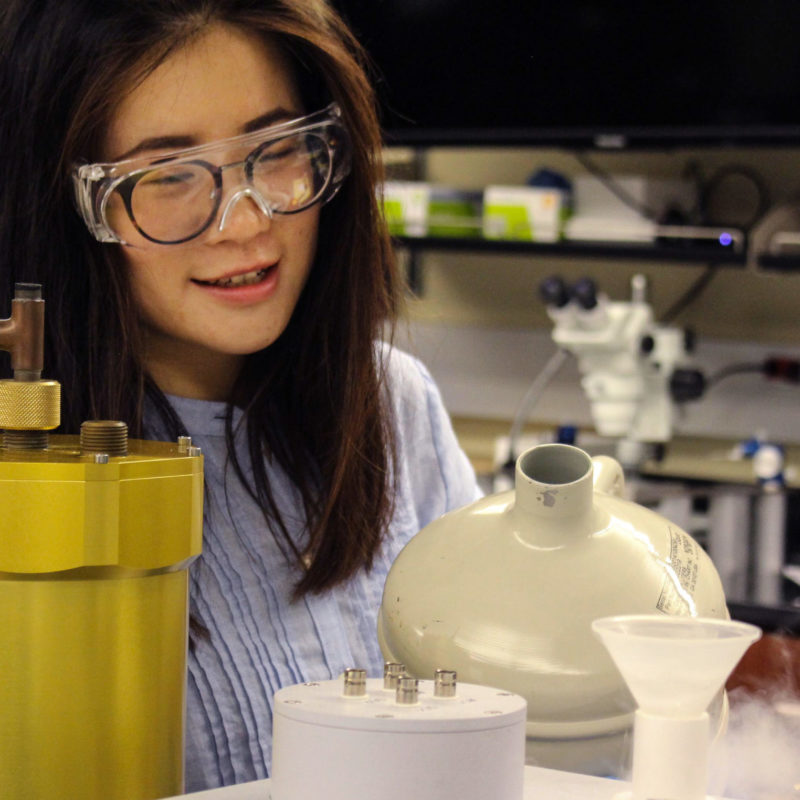The University of Notre Dame has announced a new interdisciplinary doctoral program in Materials Science and Engineering.
Students can now earn this distinctive degree through the College of Engineering and the College of Science.
“Materials science and engineering is central to a number of academic disciplines and careers, making it an important field of study to offer to graduate students at Notre Dame,” said Laura Carlson, vice president and associate provost and dean of the Graduate School.
“The new Materials Science and Engineering doctoral program will give current students the opportunity to expand on their degrees and also attract prospective graduate students who are determined to build their expertise in the field of materials science and engineering.”
Faculty from the College of Engineering and the College of Science have put together a distinctive program to equip students with the skills needed to address complex problems, such as access to clean water and energy efficiency. The program is committed to building an energetic materials community in which students and faculty collaborate to answer questions at the forefront of science and engineering.
Additionally, this new program aims to enhance student understanding in materials science and engineering by building on Notre Dame’s background and expertise in this area.
“The University has a long history in materials science and engineering, which dates back to the Department of Metallurgy that began in 1933. Since then, Notre Dame has maintained signature materials research efforts in electronic materials, actinides, polymers, and biomaterials,” said Alan Seabaugh, chair of the executive committee for the doctoral program, director of Notre Dame Nanoscience and Technology (NDnano), and Frank M. Freimann Professor of Electrical Engineering.
“This new graduate program recognizes the importance of materials in scientific inquiries and engineering innovation.”
The program will coordinate courses offered across the Colleges of Engineering and Science including courses in materials synthesis, growth, physics, chemistry, characterization, and engineering.
Students apply through one of these departments and programs: aerospace and mechanical engineering, bioengineering, chemical and biomolecular engineering, chemistry and biochemistry, civil and environmental engineering and earth sciences, electrical engineering, or physics.
“Notre Dame has maintained signature materials research efforts in electronic materials, actinides, polymers, and biomaterials.”
— Alan Seabaugh, Frank M. Freimann Professor of Electrical Engineering
Students in the Materials Science and Engineering doctoral program will craft a research plan, working with dissertation advisors who bridge departments and colleges around problems where materials are a central focus. Students who successfully complete both department and/or program and Materials Science and Engineering requirements will earn a Materials Science and Engineering Ph.D. in their discipline.
Competitive one-year, non-renewable fellowships for students are available. These prestigious fellowships provide a year of support for students, providing faculty and their research groups flexibility for writing proposals and expanding their programs.
The Materials Science and Engineering doctoral program was developed by faculty in the College of Engineering, College of Science, and the following Notre Dame Research units: Advanced Diagnostics & Therapeutics, the Harper Cancer Research Institute, the Center for Sustainable Energy at Notre Dame, and NDnano. It is administered by NDnano.
— Brandi Wampler, Notre Dame Research
